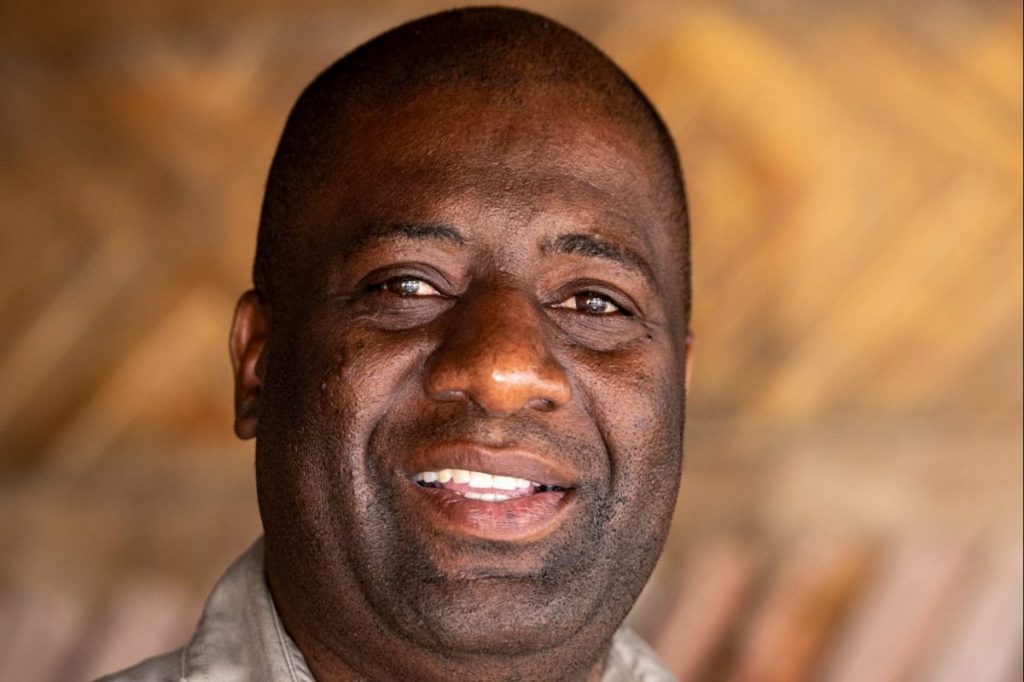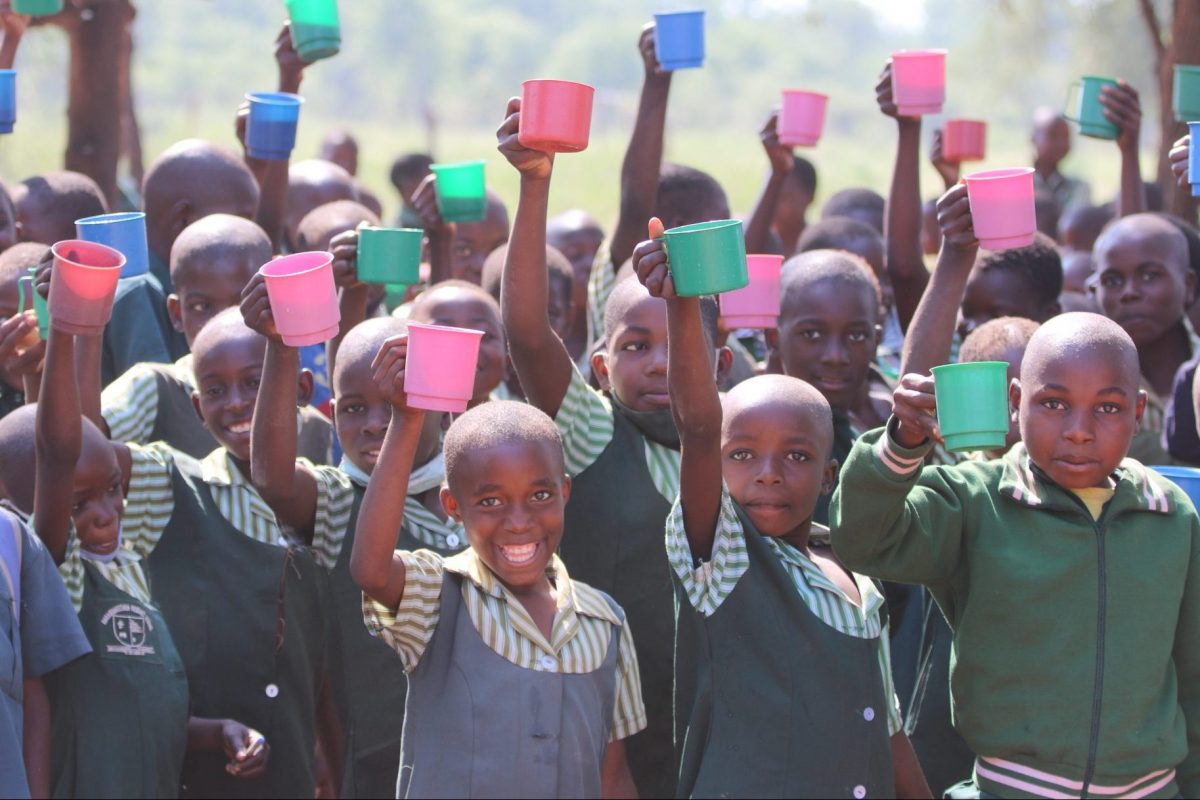One of the enduring lessons for tourism as the world emerges from the pandemic is that it really all starts from the ground up — with communities, healthy communities that build the foundation to create a thriving tourism trade.
But the obstacles to nurturing those communities are many, as Zimbabwe shows us, for example, and a reason why the work of people like Tendai Nhunzwi is so essential for the southern Africa country, home to countless wildlife sanctuaries and natural wonders, including the Victoria Falls. Rebuilding the tourism economy, which saw a 28 percent decline in employment from 2019 to 2020 to 128,000, will start locally.

Yet, food shortages in Africa are expected to be even worse this year, according to the United Nations.
It’s a perfect storm of inflation, a global pandemic, as well as a war in Ukraine affecting grain supply. Extreme weather and climate change furthers the situation, and economic pressure on farmers means they sometimes lack the seeds, fertilizer, and other necessary elements to plant and harvest next year.
The IMF estimates that staple food prices in sub-Saharan Africa rose by an average of 24 percent between 2020 and 2022, the most since the 2008 global financial crisis. According to the report, This is commensurate to an 8.5 percent rise in the cost of a typical food consumption basket (beyond generalized price increases).
The situation is more dire in Zimbabwe, which in addition to the external factors, has suffered from political instability, corruption, and some of the most rampant inflation in the world. The government isn’t able to provide all of the services it needs, so a non-profit, the Malilangwe Trust, seeks to fill in some of the gaps. It describes itself as “a wholly Zimbabwean non-profit organization dedicated to environmental conservation and committed to the development of lives in our local communities.”
The Trust and Nhunzwi work hand in hand with local hospitality and tourism.
Safari brand Singita’s Pamushana Lodge property is the ecotourism partner of the Malilangwe Trust. Though the two are operationally and fiscally independent of each other, the common thread is ecotourism to support conservation. The relationship is it symbiotic: without the work of the Trust, wildlife populations would not thrive and there wouldn’t be a safari tourism product as a result. It’s a mutually beneficial relationship: tourism dollars from well-heeled travelers support the community work. The community work and conservation makes for a more dynamic and thriving ecosystem for people to visit.
Nhunzwi, as general manager of the human resources and neighbor outreach program for the Malilangwe Trust, is on the frontlines of many things to assist the local population: but front and center is food security. And, as an English-trained accountant (he holds a degree from Oxford Brookes), part of his remit is the effectiveness of programs and how they are laddering up to higher goals. It is one thing to have non-profits, it is another to have non-profits that are effective stewards of donations and capital.
In 2003, the Malilangwe Trust established the “Child Supplementary Feeding Scheme,” in response to negative impacts of 2002 drought that left most of the children in the district exposed to hunger and malnutrition.
Nhunzwi said it was initially designed to provide a fully balanced meal every school day to children under five years old at satellite meal sites and to children under 12 years at schools in the area. Today, it has scaled significantly, and “the project ensures nutrition to Zimbabwean children, reaching more than 20,000 per day.”
Nhunzwi mentioned that in addition to keeping mouths fed, it solves for a big problem: lack of access and long commutes to school. Children “have to walk long distances to attend school, by having a nutritious meal, it boosts attendance but also improves overall nutrition and health.” The program data shows that it has had a positive impact on enrollment, and improved attendance. It is not just addressing a noble mission, getting rid of rumbling stomachs, but it is laddering up to higher order goals of attendance and graduation in poor, rural areas of the country where going to school is not always the mandatory that it is in other places.
Since the program launched around 20 years ago, the trust has grown to employ 32 staff in local communities who are tasked with food handling and preparation, making sure there is consistency and reliability in delivery. Though Covid closed schools and disrupted the program for 2020 and a short part of 2021, it is back up and running, as Africa’s food crisis worsens.
Nhunzwi started in Malilangwe in 2007, initially in human resources, but a lot of his job is in the field, administering to projects initiated by the trust. And food is one of the most core to his mission. He suggests that the Trust fills a valuable, NGO, to assist a country that has been rocked by recurring economic instability and a government that has gaps in what it can actually provide. “I am very familiar with the way of living in most rural communities in the country,” he said. “Children are left vulnerable because of food shortages and sometimes lack of access to quality education.”
In addition to keeping children fed, the Trust also has several community projects including a market garden to grow fresh produce, as e-learning labs, for remote and rural students to be able to follow the Zimbabwean school syllabus. There is also a conservation and wildlife education program, to start education early on the topic of conservation, and to steer children away from the economically tempting paths of poaching and hunting bush meat, both of which are disasterous for the country’s delicate ecology and for the future of animals like the Rhino.
With an accountant’s eye for efficacy and return on investment, Nhunzwi has said the conservation program is turning children into advocates, helping to police their parents and serving as micro-ambassadors for the larger good. The students start seeing their local environment with fresh eyes, even going on a game drive like some of the tourists visiting the country. It’s different from a classroom setup: it’s an immersive introduction to an entire ecosystem and the true value of wildlife. The food security, education, and approach to early childhood conservation studies are all investments that will hopefully have an exponential return on capital for the surrounding areas.
Subscribe to Skift Pro to get unlimited access to stories like these
{{monthly_count}} of {{monthly_limit}} Free Stories Read
Subscribe NowAlready a member? Sign in here
Subscribe to Skift Pro to get unlimited access to stories like these
Your story count resets on {{monthly_reset}}
Already a member? Sign in here
Subscribe to Skift Pro to get unlimited access to stories like these
Already a member? Sign in here
